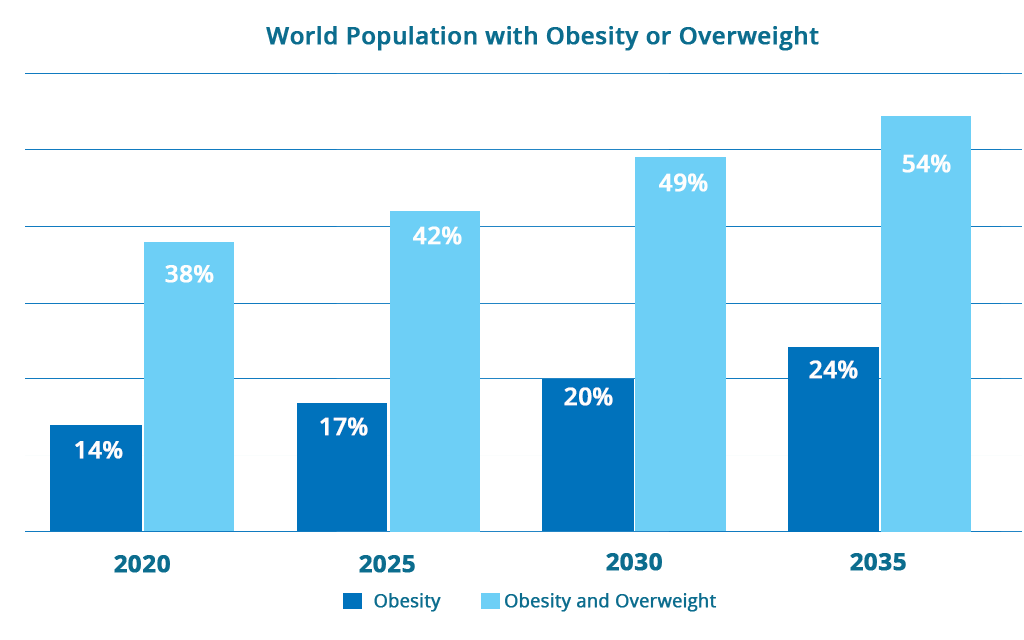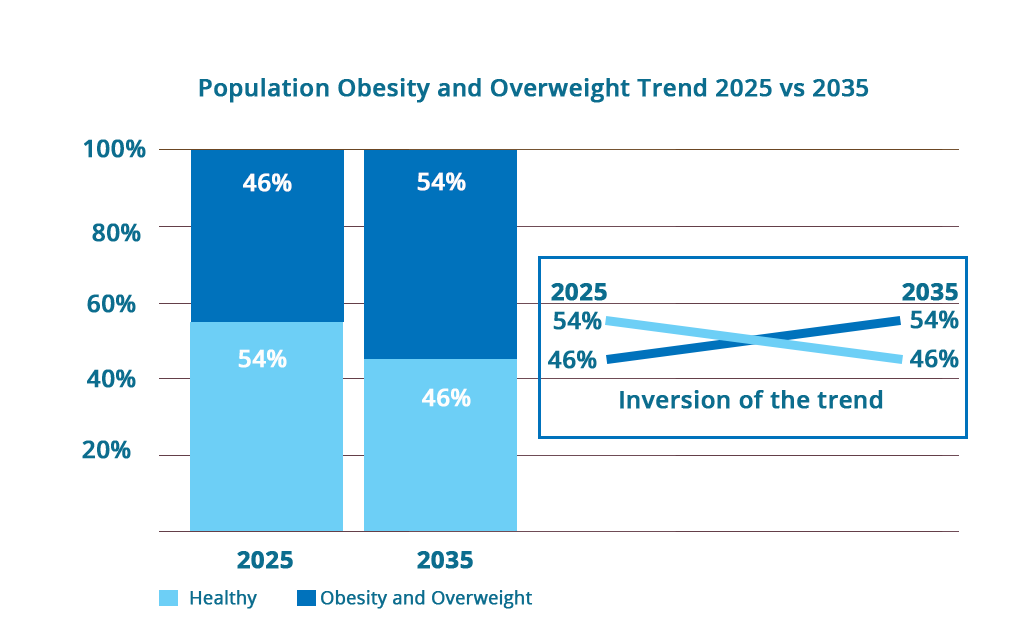Understanding the Global Obesity Pandemic

Obesity is one of the most pressing health concerns worldwide, affecting billions of people across all age groups. According to the World Obesity Atlas 2024, nearly 3.3 billion adults are projected to have overweight or obesity by 2035, up from 2.2 billion in 2020. This increase reflects a shift from 42% to over 54% of the global adult population.

Obesity significantly raises the risk of developing non-communicable diseases (NCDs) such as type 2 diabetes, coronary heart disease, stroke, and various cancers. High BMI (Body Mass Index) is responsible for over 5 million deaths annually and accounts for more than 120 million adult years lost to disease. Alarmingly, children are also increasingly affected, with projections estimating that by 2035, 750 million children (ages 5-19) will be living with overweight or obesity.

Beyond health, obesity imposes severe economic burdens. The global economy is expected to lose over $4 trillion annually by 2035 due to obesity-related healthcare expenses and lost productivity. Additionally, obesity and environmental degradation are interconnected, with urbanization, processed food consumption, and sedentary lifestyles contributing to both crises.

Addressing obesity requires urgent, multi-sectoral strategies, including policy changes, improved healthcare systems, and community-driven initiatives to promote healthy lifestyles and reduce stigma.
Join the International Association for the Treatment and Prevention of Obesity (IATPO) in the fight against obesity. Learn more and take action today!
